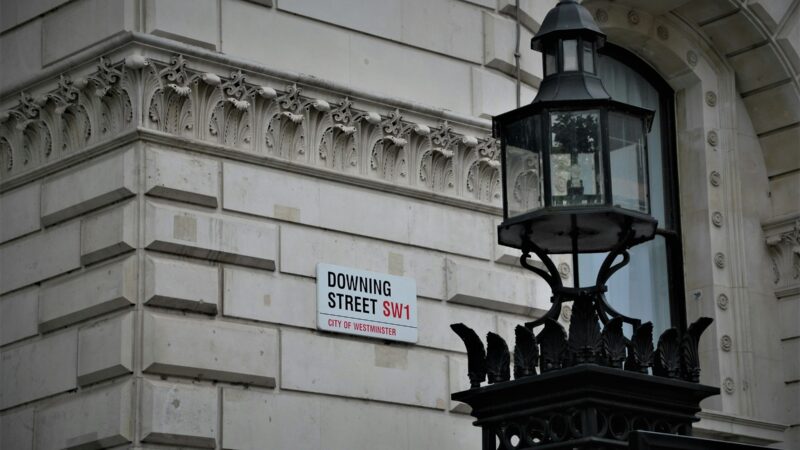Generally, in our circles, Foucault is mostly mocked for his personal life and called one of ‘those French intellectuals that ruined it all’. However, if we were to actually investigate his claims, we’ll realise that he is quite close to the Moldbugian thought, except he never connected the dots.
I’m here to introduce an opinion that may shock you. Foucault was right, actually. And I’m going to explain why.
For those, who don’t know much about his theories, we can pretty much boil it down to the following:
1. Everything is a prison
2. There is no escape from the prison
3. The institutions are your enemy
4. The system creates ‘docile bodies’ that are not able to rebel against the power structures
In Discipline and Punish, Foucault comes out with the theory of The Carceral, he brings up the example of the Mettray school which was known for its “cloister, prison, school, regiment” function. He uses his example to develop an argument about institutions being the main tool for surveillance and punishment.
What struck me when reading Foucault was the close resemblance of his thought to the Moldbugian concept of ‘The Cathedral’. As claimed by the man himself:
“The mystery of the cathedral is that all the modern world’s legitimate and prestigious intellectual institutions, even though they have no central organizational connection, behave in many ways as if they were a single organizational structure.” – Mencius Moldbug, Gray Mirror blog, 21/01/2021, ‘A Brief Explanation of The Cathedral’
Foucault claims that universities are the main vehicles of power. There’s a never-ending cycle of power found within the university halls – a student is punished by the teacher, and the teacher is punished by the institution. A teacher is just a function of the power structures ruling over them.
When we then look at Giroux and his essay on Zombie Politics, (who completely misunderstands the political climate of the modern era but let’s forget that for a moment) – ‘zombies’ (here meaning politicians) have an “ever-increasing presence in the highest reaches of government and at the forefront of mainstream media”, which makes us think of the Chomskian concept of media manufacturing consent – there is a clear connection of the governmental powers using media and academia exerting power onto its subjects – they gatekeep access to higher levels of society if it doesn’t comply with their agenda. They are the ones wielding the power as they choose who will get high up in the ranks of control or not.
As such, when we’ll take Foucault focusing on academia being at the core of the power structures, Chomsky with manufacturing consent by the media, and Giroux linking it to the governmental controls, we basically have the Cathedral.
Foucault, although labelled as a left-wing thinker, which is perhaps more prominent in his other writing, never claims to have a solution to this problem. He just states the issues with the power structures and where they come from – and here, he is inherently correct.
The problem is that the status quo is currently left-wing. These power structures mobilise against right-wing thought – we have academia which is oversaturated by left-wing thinkers, mainstream media which doesn’t dare stray from the status quo and the ‘conservative government’ which is neoliberal masquerading as conservatives.
Foucault and others unwittingly pointed out the issue, but they never connected the dots.
So how do we deal with the world where the power structures surround us? There is no way out. Foucault claims that power structures use surveillance to catch any outliers, punish them by gathering knowledge against them and by using educative/punishing methods, render them docile and bring them back into the world, brainwashed, repackaged and back within the power structures they wanted to oppose.
And we see it these days – anyone who tries to dissent from the ‘current thing’ is immediately shut down, de-platformed, removed, their bank accounts closed, and freedoms curbed until they have no choice but to conform again.
Foucault may have not expected this to happen in this form, yet the issue remains. The increasing surveillance in the modern era is a cause of concern, too. One cannot function without technology, but this same technology cripples and watches us. Anyone who claims otherwise is a fool.
Another interesting point from Foucault was that it is the labels that the institutions give to the ill that cause the diseases. Considering that we live in an era where mental illness and gender dysmorphia becomes trendy, the labels are easy blankets to use to justify behaviours that would have been otherwise abhorrent.
Foucault offers a lot of useful insight. He describes the power-wielders as “technicians of behaviour, engineers of conduct, orthopaedists of individuality”, sounds familiar? Currently, every current thing is manufactured, the individuality is only allowed if it fits the regime. The freedom of political thought is a thing of the past.
‘Orthopaedists of individuality’, orthopaedic suggests improving something that needs correcting – individuality is treated as a deformity that’s an unpleasant problem that needs correcting.
It is blatantly obvious that academia and journalism are overwhelmingly filled with left-wing thinkers and government structures are trying to appease the left-wing voters who are largely demographically middle-class, so the societal left-wing shift is apparent, this being facilitated by the large corporations. This noveau bourgeoisie class has got full cultural hegemony over the dominant cultural and political thought.
This successfully gatekeeps from the right-wing thought ever arising or being put under serious scrutiny, since it isn’t acknowledged in the first place.
With the rise and increase of surveillance and more legislation being put through by the government continually attempting to bow to the on-the-fence voters, the ever-increasing monitoring of free speech renders it no longer free.
This continuous surveillance and forced self-correcting of speech proceeds to create docile bodies – it incapacitates and removes any form of political discussion and fuels the actual Schmittian friend-enemy distinction. The government structures alongside academia and mainstream media create an unbreakable mode of power that devours and forces its subjects to yield.
Foucault may be a less popular guy on our side of politics, but he brings in a lot of important insight that can help us understand the power structures at hand. Everything is a prison. A man made, neoliberal hell of a prison.
Enjoying The Mallard? Consider subscribing to our monthly magazine.



